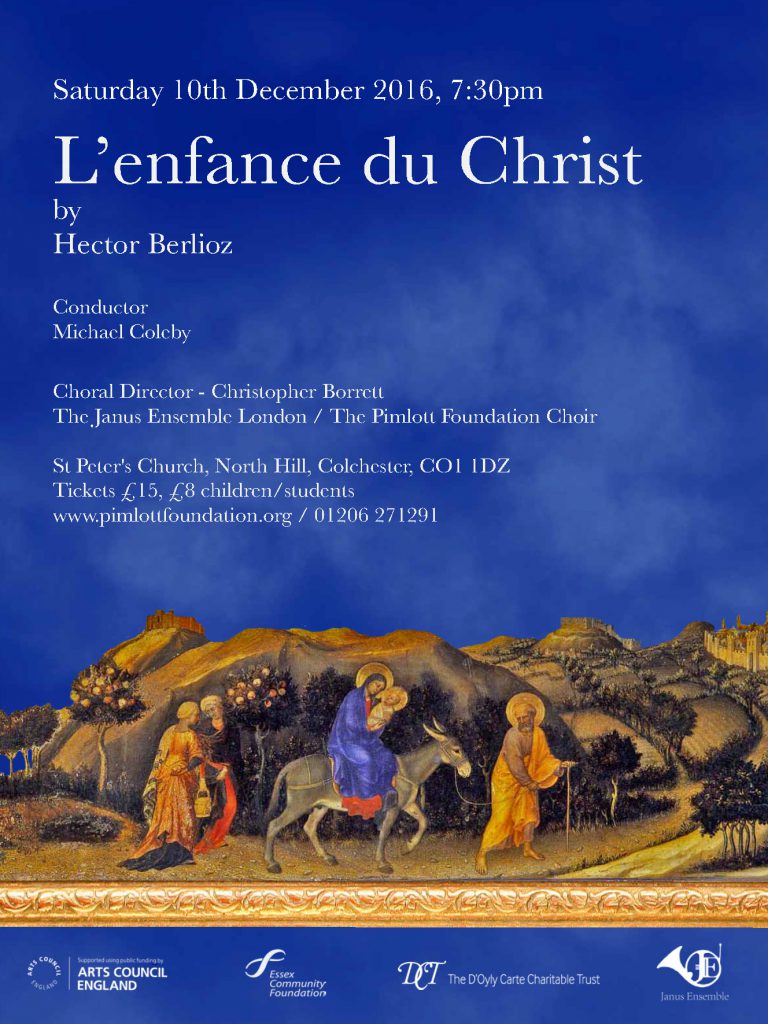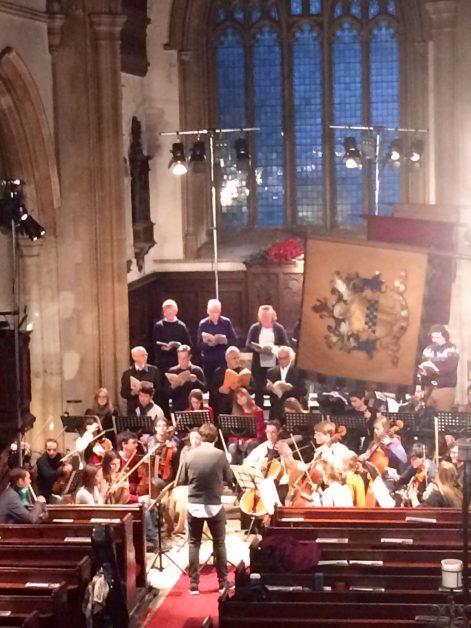 For our 2016 Christmas Concert we performed L’enfance du Christ (The Childhood of Christ)
For our 2016 Christmas Concert we performed L’enfance du Christ (The Childhood of Christ)
An Oratorio by Hector Berlioz, at St Peter’s Church, North Hill, Colchester CO1 1NZ on Saturday 10 December 2016.
For the Pimlott Foundation, this concert brought together musicians from a variety of backgrounds.
Richard Moore (Polydorus / Le Pere) and Catrin Pryce-Jones (Marie) have been sponsored by the Pimlott Foundation alongside Dominic Sedgwick, (Joseph).
We also welcomed Zachary Kleanthous (Centurion), Jerome Knox (Herod) and Thomas Atkins (Narrator).
Choir members were drawn from local choral societies, Pimlott Foundation Family Choir (and keen singers!), under the directorship of our associate conductor Chris Borrett and the Janus Ensemble with conductor Michael Coleby.
You can read the concert programme by clicking here.
About the Oratorio
L’enfance du Christ (The Childhood of Christ), is an oratorio by the French composer Hector Berlioz, based on the Holy Family’s flight into Egypt.
 Berlioz wrote his own words for the piece. Most of the work was composed in 1853 and 1854, but it also incorporates an earlier work La fuite en Egypte. It was first performed at the Salle Herz, Paris on 10 December 1854, with Berlioz conducting.
Berlioz wrote his own words for the piece. Most of the work was composed in 1853 and 1854, but it also incorporates an earlier work La fuite en Egypte. It was first performed at the Salle Herz, Paris on 10 December 1854, with Berlioz conducting.
Berlioz described L’enfance as a trilogie sacrée (sacred trilogy).
The first of its three sections depicts King Herod ordering the massacre of all newborn children in Judaea; the second shows Mary, Joseph, and Jesus setting out for Egypt to avoid the slaughter, having been warned by angels; and the final section portrays their arrival in the Egyptian town of Sais where they are given refuge by a family of Ishmaelites.
Berlioz was not religious as an adult but remained all his life susceptible to the beauty of the religious music that had enraptured him as a child.
Berlioz’s music was usually received with great hostility by Parisian audiences and critics, who generally accused it of being bizarre and discordant. Yet L’enfance du Christ was an immediate success and was praised by all but two critics in the Paris newspapers.
The work has maintained its popularity – it is often performed around Christmas – and many recordings have been made of it.






 This concert was funded by
This concert was funded by 
